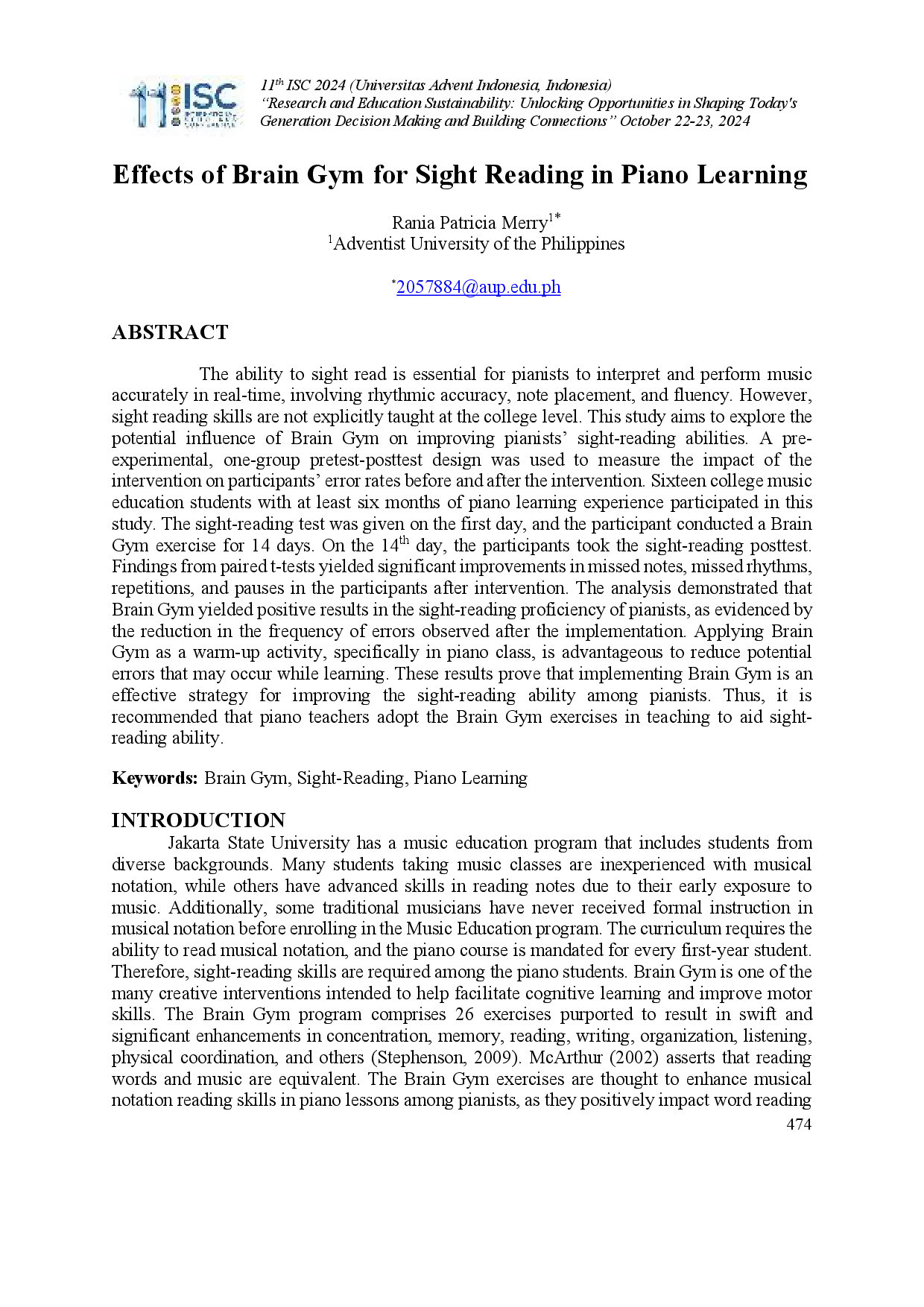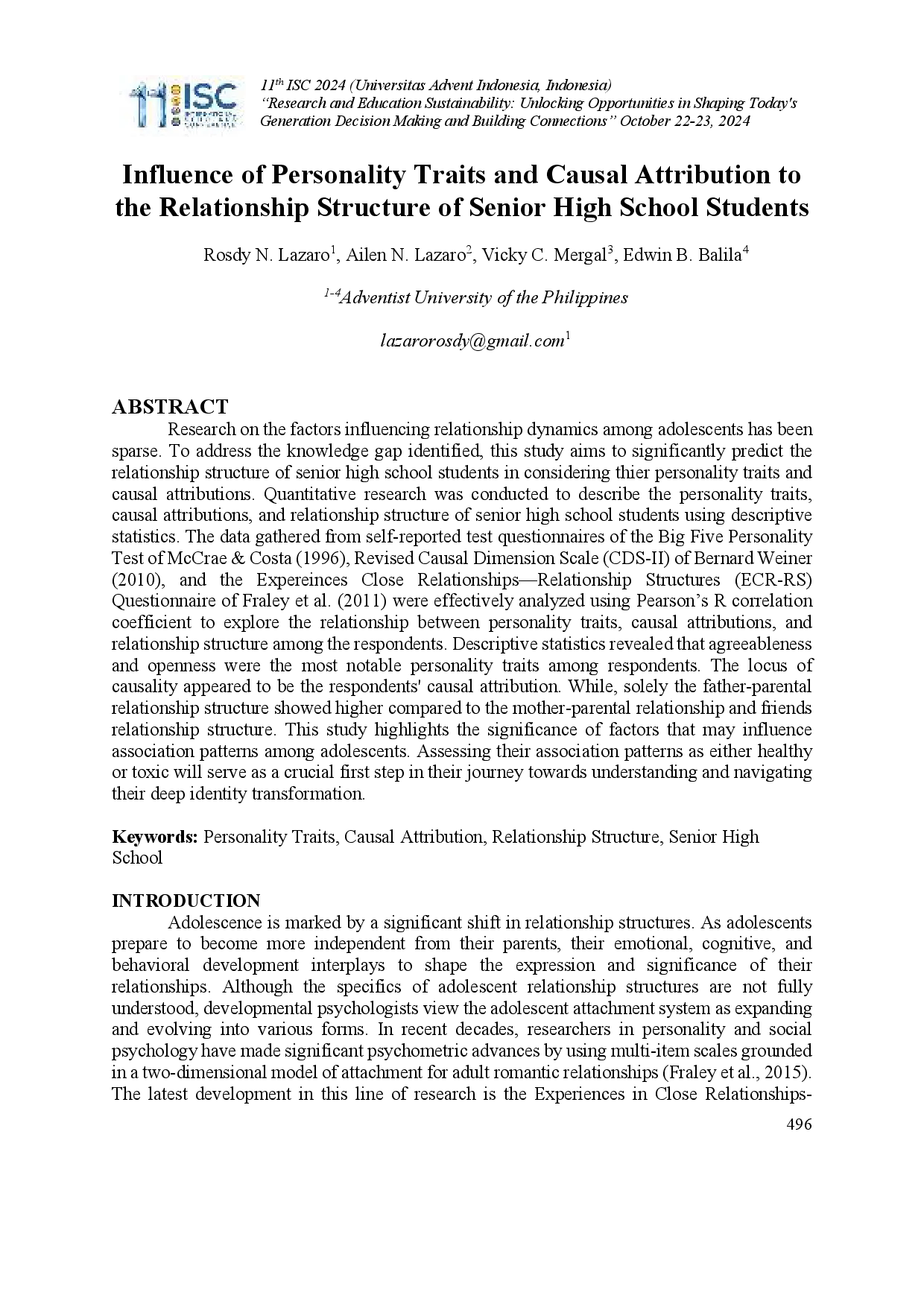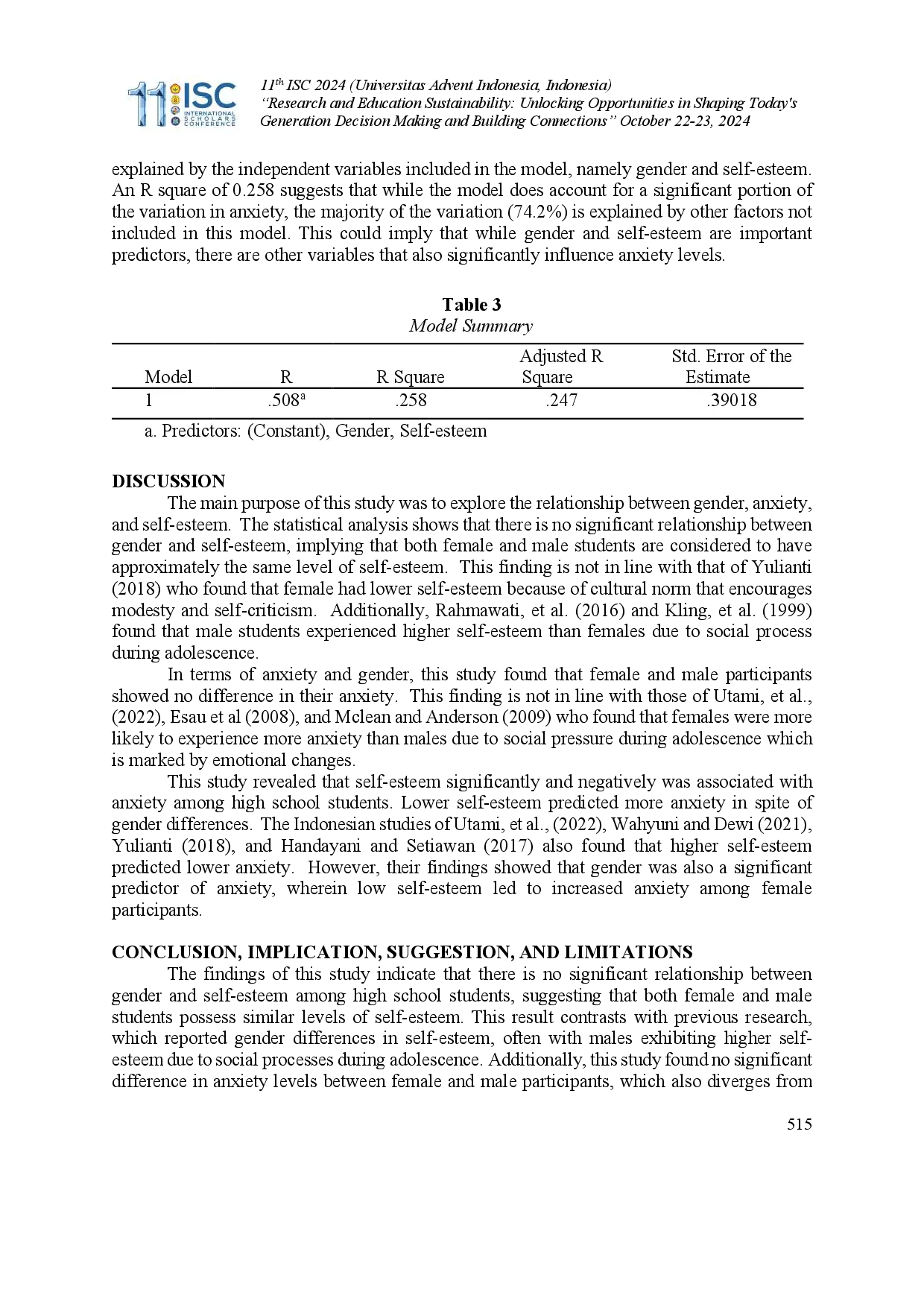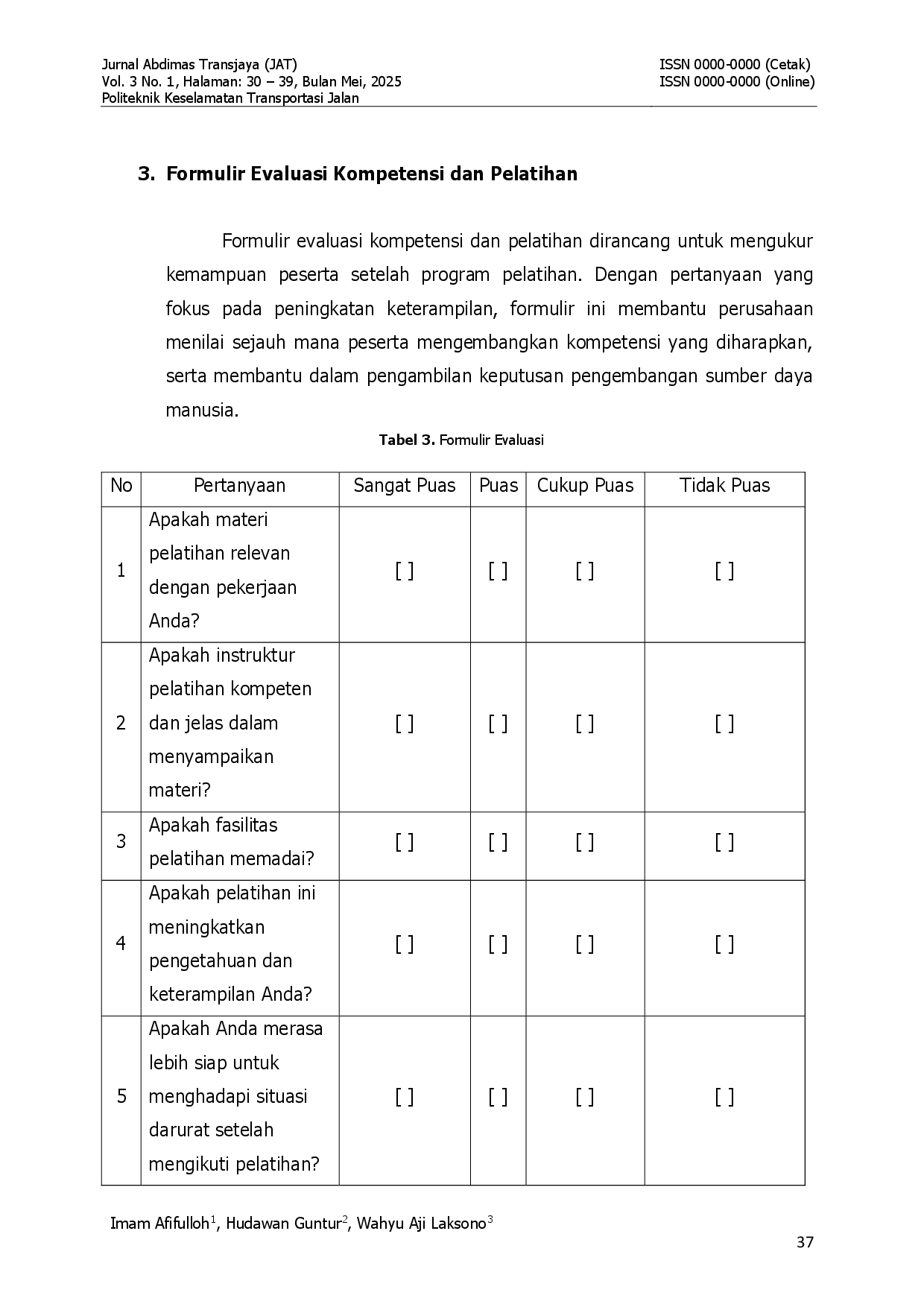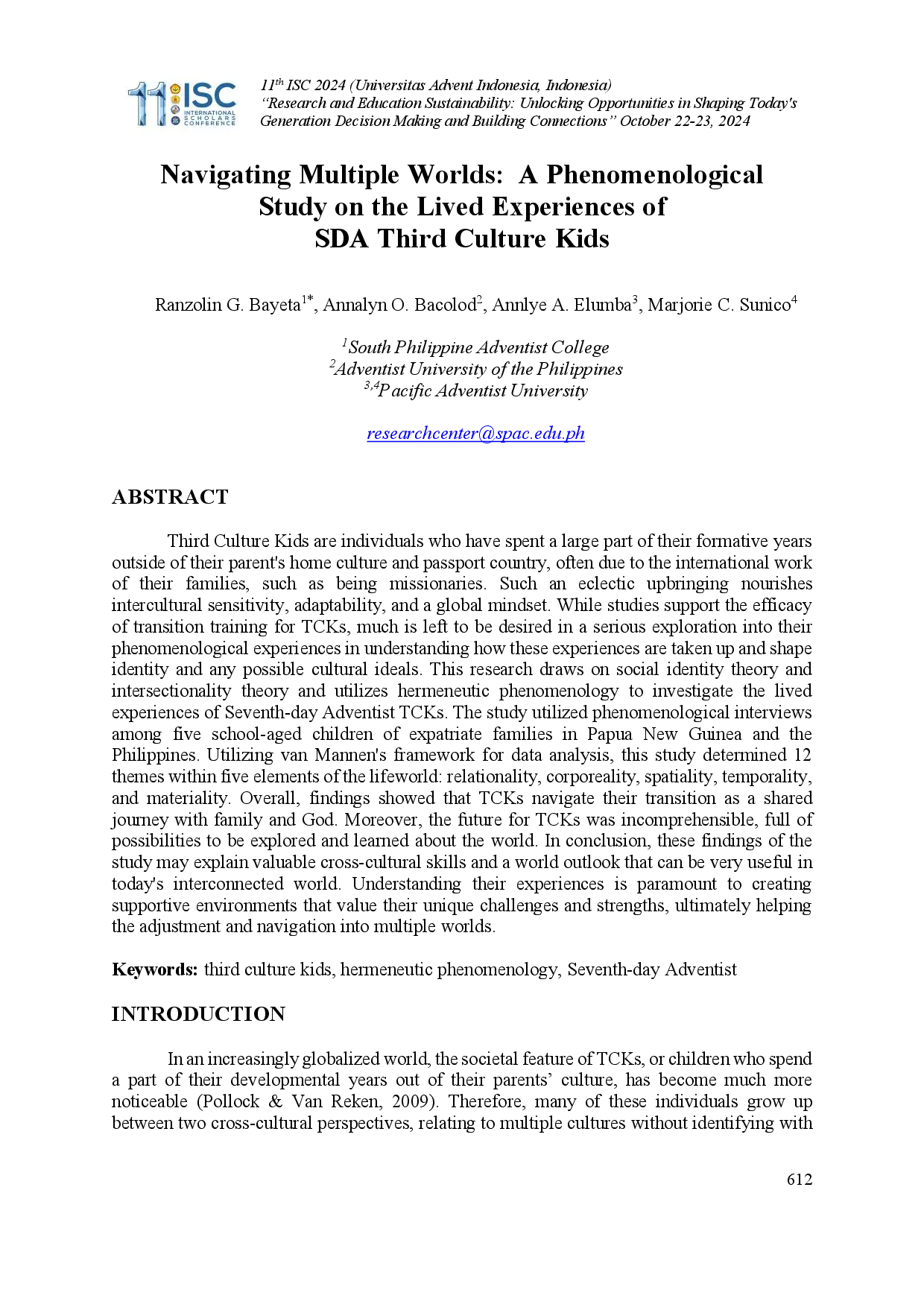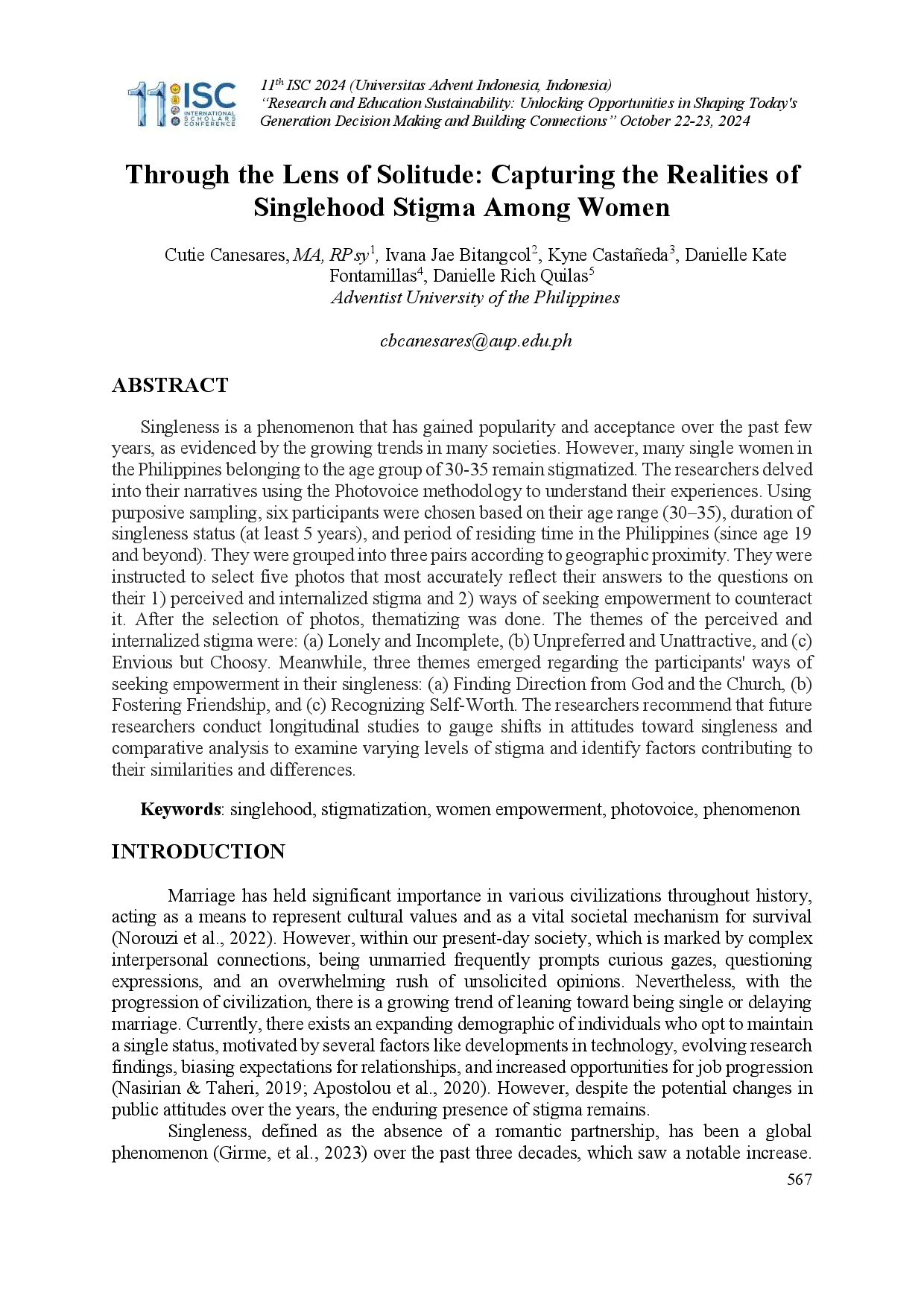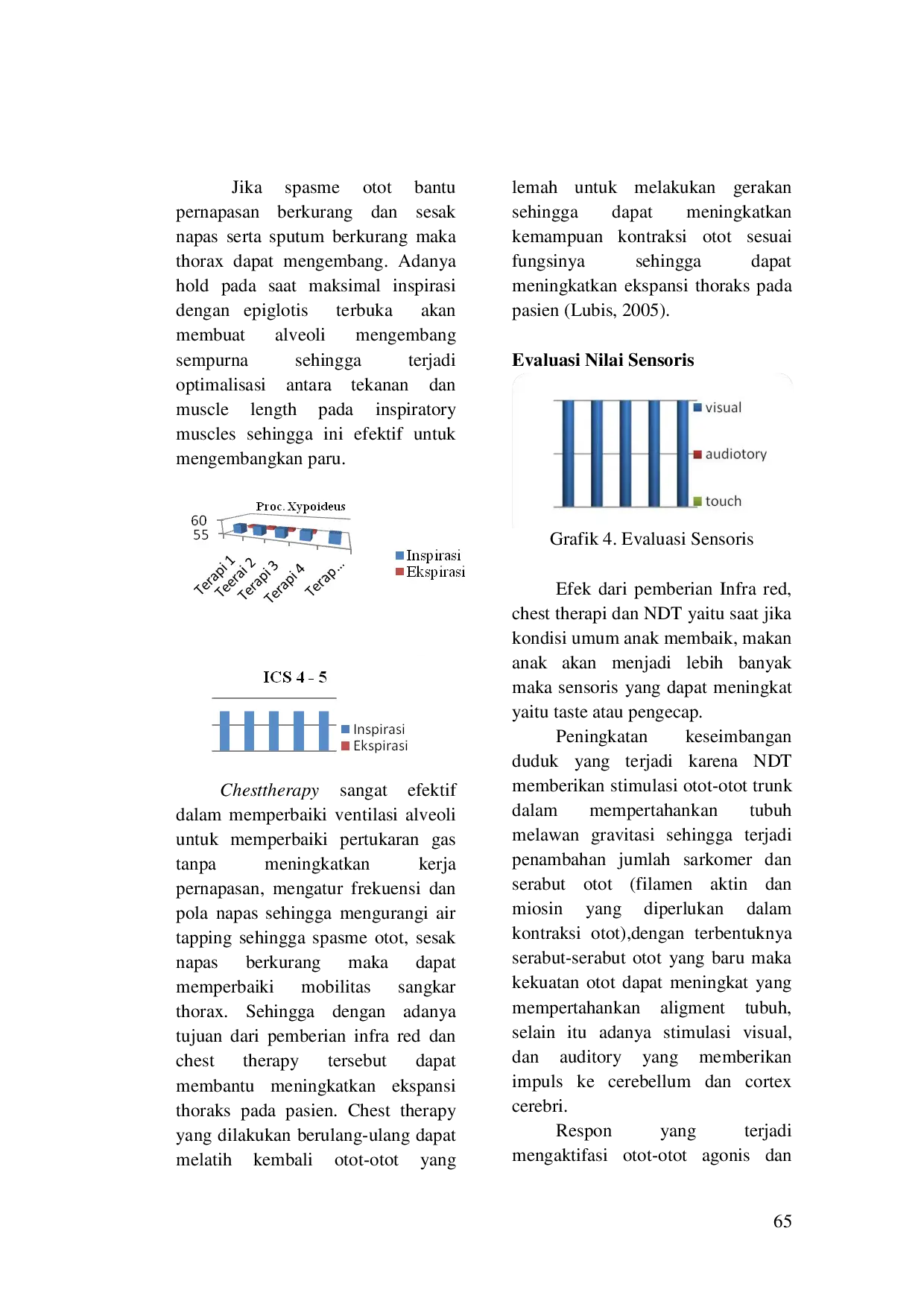UNAIUNAI
11th International Scholars Conference11th International Scholars ConferenceMost impact assessments are done using a positivists approach, but interpretive designs provide rich insights from personal views of project recipients. Hence, a study was conducted to explore the impact of agricultural interventions of a university and their contribution toward farmers food security and increased income. This descriptive narrative research employed in-depth interviews among target participants following the guide questions formulated based on research objectives. Thematic analysis was used to bring about emerging codes, categories, and themes by using open, axial, and selective coding. The study generated six themes that serve as pieces of evidence on the impact of the extension project particularly the establishment of the Farmers Learning Center (FLC), also known as the trial farm cum community seed bank, through bayanihan. A total of 23 different crops were grown in 2018 and planting materials were distributed to the farmers. Simultaneously, three indigenous crops namely foxtail millet, adlay and roselle were maintained in the FLC. The participants viewed FLC as a source of knowledge and at the same time they are treated as partners in development. Roselle which emerged as a resilient crop has therapeutic benefits and a potential source of income. The study highlighted the challenges encountered which include lack of market and participants limited technical knowledge in processing roselle. Thus, this study urges the university to continue the agricultural intervention to capacitate further the farmers and link them with agencies that offer equipment support to improve roselle processing, handling, packaging and storage.
The research demonstrates a significant positive impact of agricultural interventions, specifically the Farmers Learning Center (FLC) and the cultivation of roselle, on the food security and income of farmer-beneficiaries.However, challenges such as limited market access and a lack of technical expertise in roselle processing were identified.Therefore, continued support from the university, including training on roselle processing, packaging, and storage, as well as connections to relevant agencies for equipment support, is crucial for sustaining these benefits.
Further research should investigate the potential for developing value-added roselle products to address the market limitations identified in this study, perhaps exploring innovative processing techniques or niche market opportunities. Additionally, a comparative analysis of the FLC model with other agricultural extension approaches could reveal best practices for enhancing farmer resilience and promoting sustainable agriculture. Finally, longitudinal studies are needed to assess the long-term impacts of the agricultural interventions on farmer livelihoods and food security, considering evolving climate conditions and market dynamics, and to understand how the knowledge gained through the FLC is disseminated and sustained within the community over time. These investigations will contribute to a more comprehensive understanding of how to effectively support farmers in adapting to climate change and improving their economic well-being, building upon the successes of the FLC and addressing the challenges encountered.
| File size | 252.03 KB |
| Pages | 12 |
| DMCA | ReportReport |
Related /
UNAIUNAI Penelitian ini bertujuan mengeksplorasi pengaruh latihan Brain Gym terhadap peningkatan kemampuan sight‑reading pada mahasiswa musik. Metode pre‑experimentalPenelitian ini bertujuan mengeksplorasi pengaruh latihan Brain Gym terhadap peningkatan kemampuan sight‑reading pada mahasiswa musik. Metode pre‑experimental
UNAIUNAI Penelitian tentang faktor-faktor yang mempengaruhi dinamika hubungan di antara remaja masih jarang. Untuk mengatasi kesenjangan pengetahuan yang teridentifikasi,Penelitian tentang faktor-faktor yang mempengaruhi dinamika hubungan di antara remaja masih jarang. Untuk mengatasi kesenjangan pengetahuan yang teridentifikasi,
UNAIUNAI Temuan ini kontras dengan penelitian sebelumnya yang menunjukkan bahwa pria biasanya memiliki harga diri yang lebih tinggi dan wanita lebih rentan terhadapTemuan ini kontras dengan penelitian sebelumnya yang menunjukkan bahwa pria biasanya memiliki harga diri yang lebih tinggi dan wanita lebih rentan terhadap
UNAIUNAI Ini menekankan peran mediasi gaya koping dalam hubungan antara fungsi psikologis dan kesejahteraan. Data dikumpulkan dari 353 mahasiswa di sebuah universitasIni menekankan peran mediasi gaya koping dalam hubungan antara fungsi psikologis dan kesejahteraan. Data dikumpulkan dari 353 mahasiswa di sebuah universitas
Useful /
PKTJPKTJ Rancangan prosedur peningkatan kompetensi dan pelatihan disusun berdasarkan PM 85 Tahun 2018 dan literatur terkait, dengan fokus pada mengatasi kendalaRancangan prosedur peningkatan kompetensi dan pelatihan disusun berdasarkan PM 85 Tahun 2018 dan literatur terkait, dengan fokus pada mengatasi kendala
UNAIUNAI Third Culture Kids (TCK) adalah individu yang menghabiskan sebagian besar tahun-tahun pembentukan diri mereka di luar budaya asal orang tua, biasanya karenaThird Culture Kids (TCK) adalah individu yang menghabiskan sebagian besar tahun-tahun pembentukan diri mereka di luar budaya asal orang tua, biasanya karena
UNAIUNAI Penelitian ini mengungkap garis tipis antara stigma singlehood dan realitas pengalaman peserta. Stigma seperti kesepian dan persepsi ketidakmenarikan dapatPenelitian ini mengungkap garis tipis antara stigma singlehood dan realitas pengalaman peserta. Stigma seperti kesepian dan persepsi ketidakmenarikan dapat
PUSKOMCERIAPUSKOMCERIA Setelah menjalani terapi sebanyak lima kali, terdapat penurunan spasme otot bantu pernapasan dan berkurangnya sesak napas. Selain itu, terjadi peningkatanSetelah menjalani terapi sebanyak lima kali, terdapat penurunan spasme otot bantu pernapasan dan berkurangnya sesak napas. Selain itu, terjadi peningkatan
